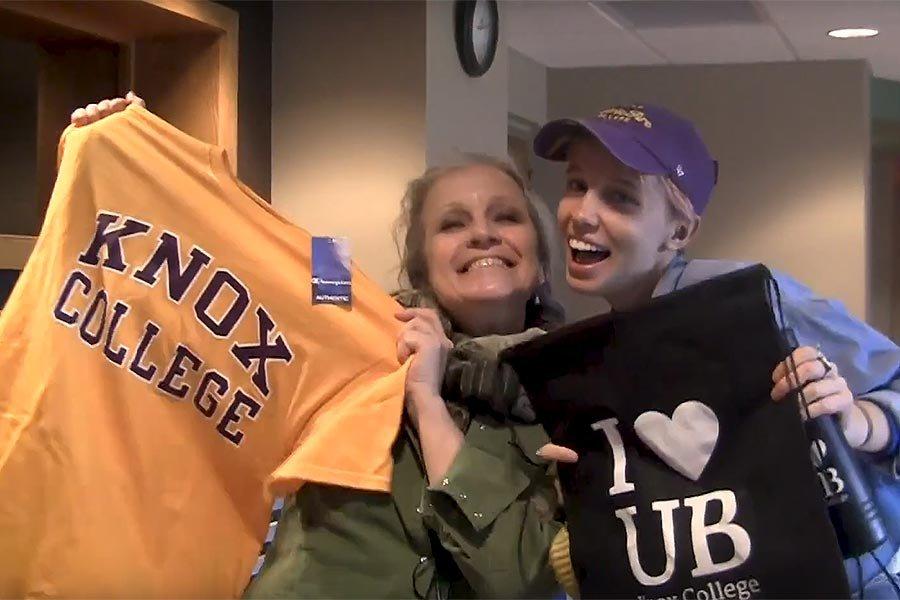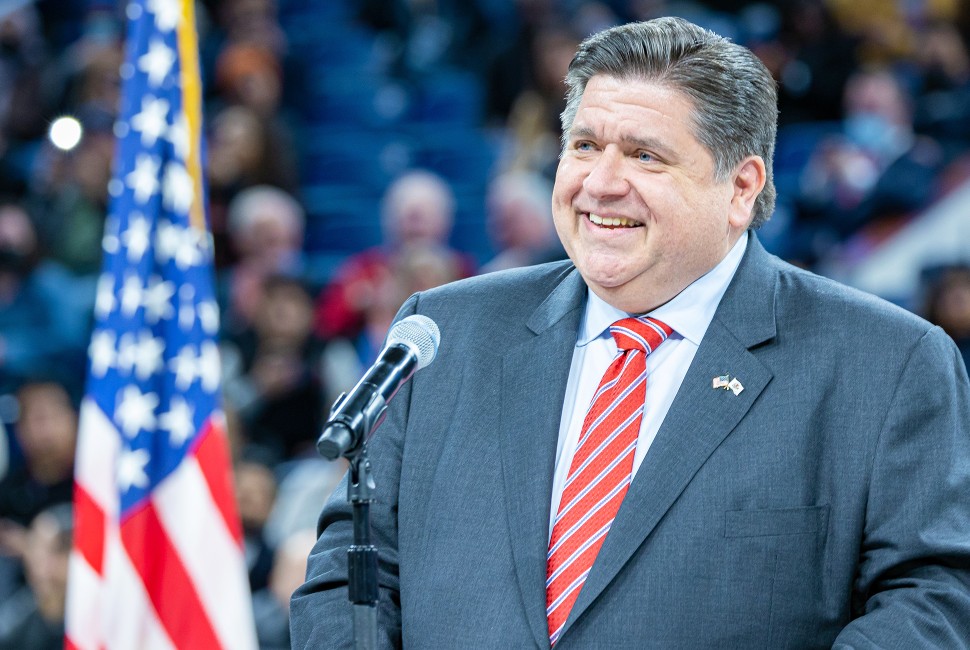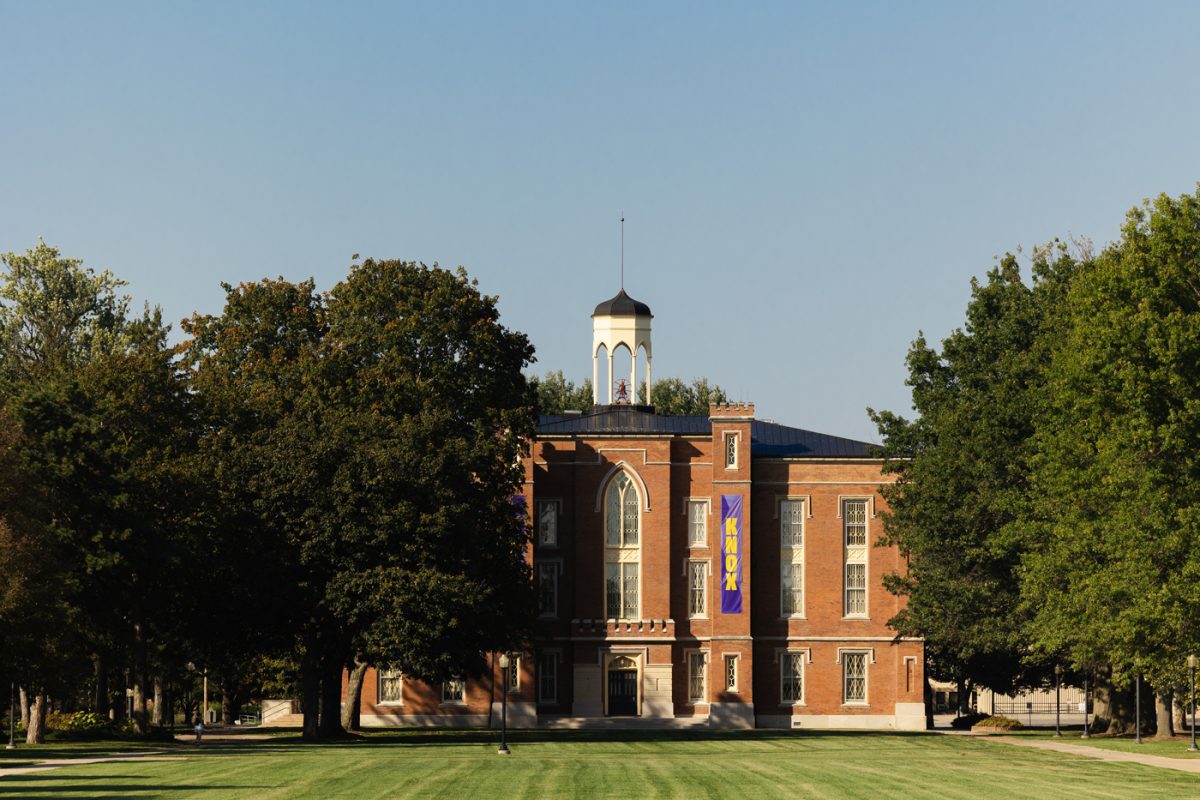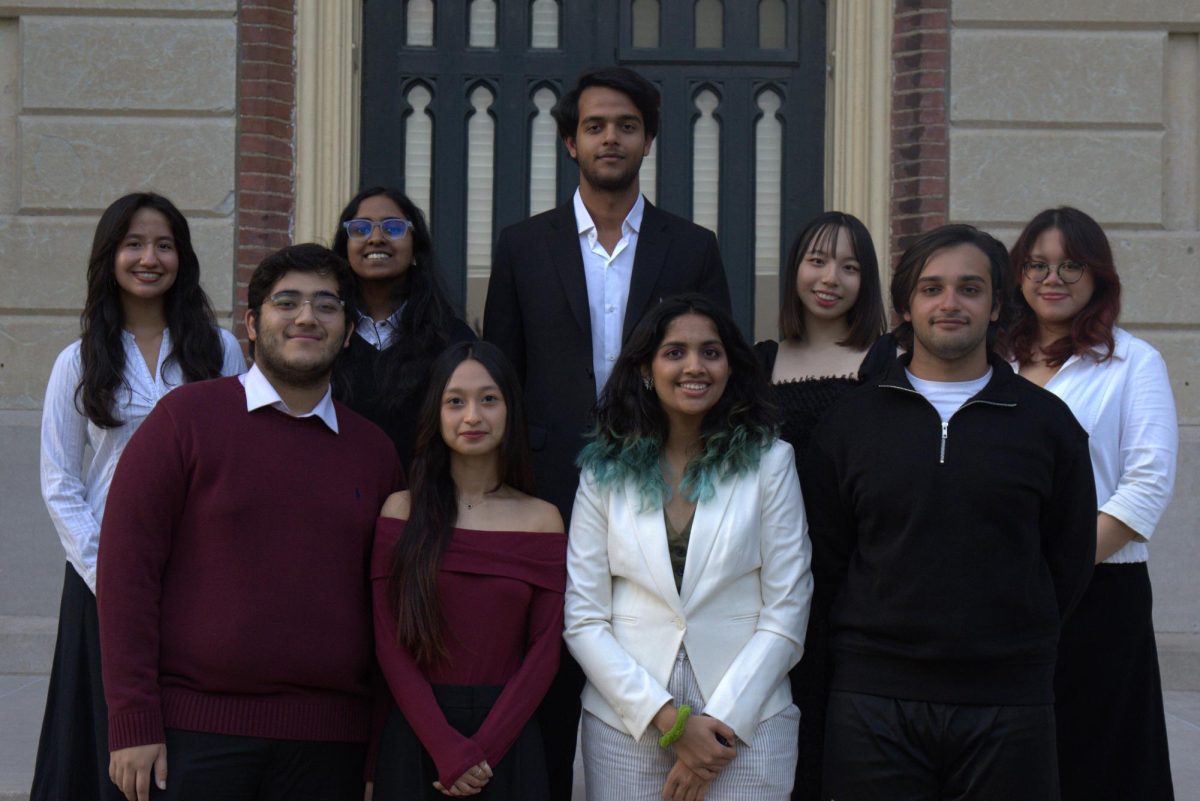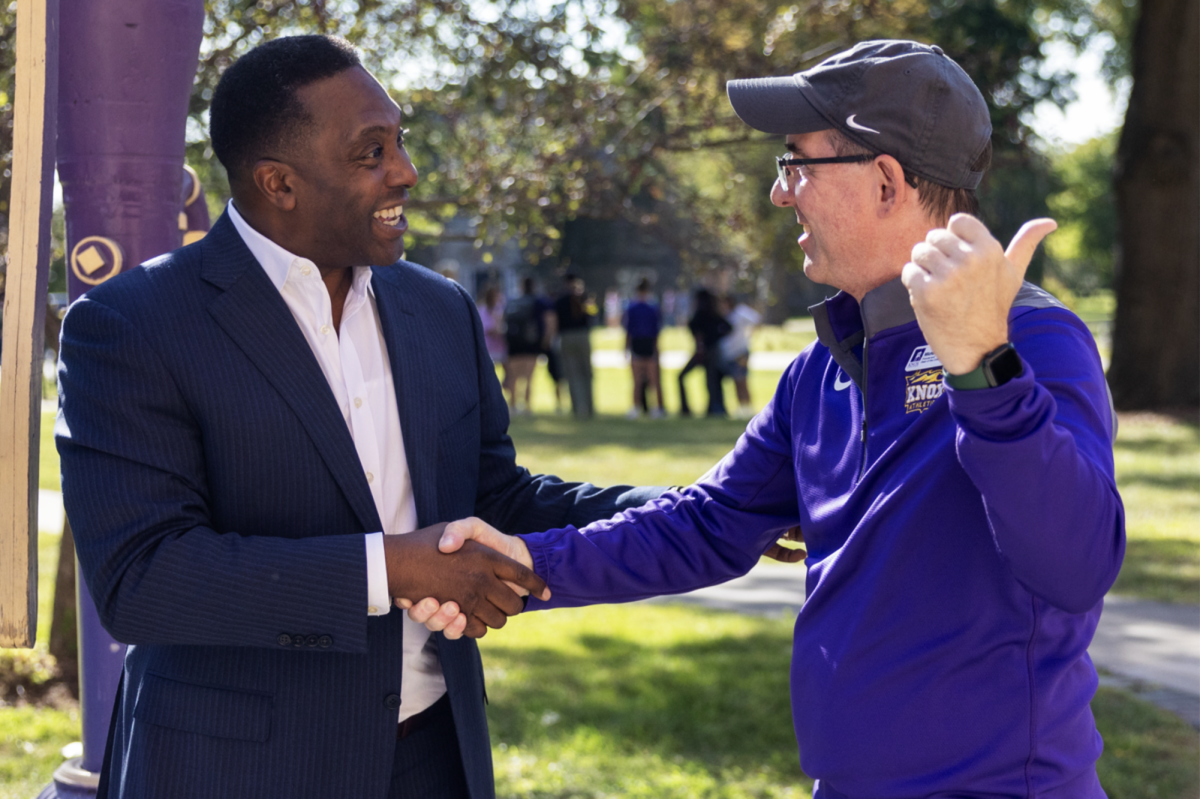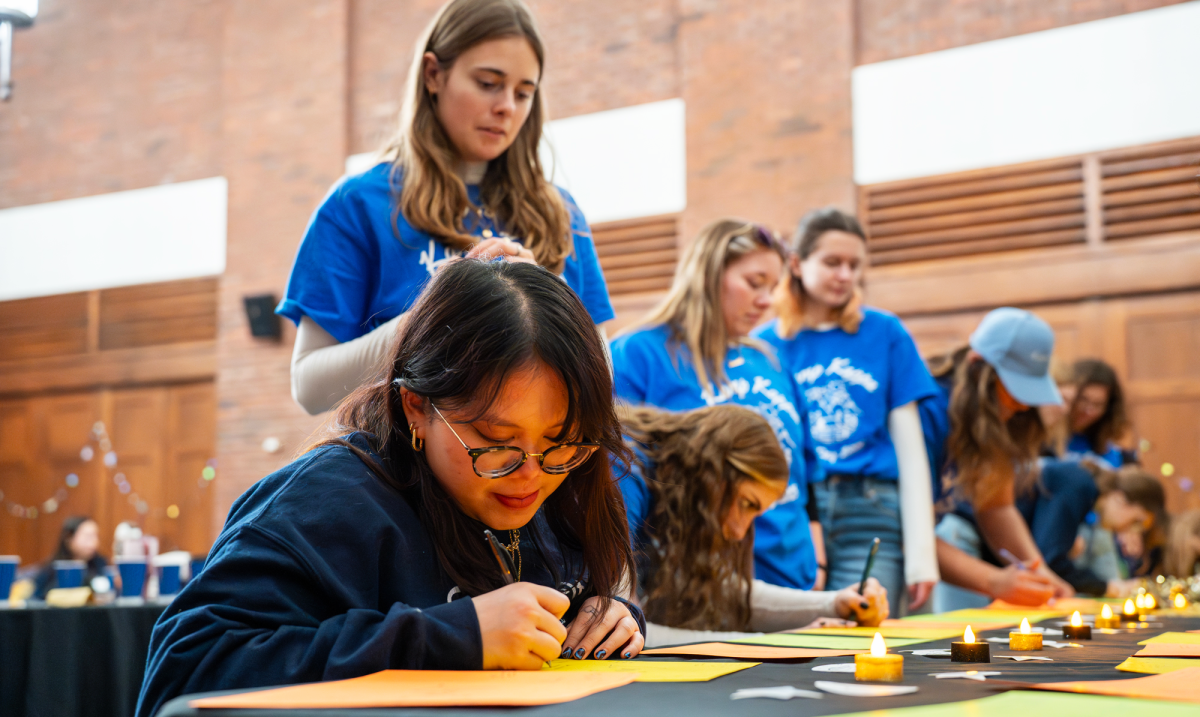Parents’ Weekend brings to mind images from Gilmore Girls of Rory and Lorelai meandering stunned through Yale’s pregame tailgating. It’s a classic part of the college experience. We don’t have the Gilmores to give witty commentary, but Family and Friends Weekend here at Knox is still an event that brings about mixed feelings for the student body. This year the event was downsized to Family and Friends Day due to Covid guidelines. With fewer family members coming out than normal, some students are asking, why do we have the event? And do we want to?
“The description of it has always been ‘come see what it’s like to be a student at Knox’”, Executive Assistant of Student Development Stacia Mattan said, “I think families ultimately just want to spend time with their kid.” Mattan has been in charge of planning Parents’ Weekends for several years. She explained how the event normally goes, when families stay for the whole weekend. They can stop by classes, and different offices host small events and meet and greets.
While many students were looking forward to Parents Weekend, some were not. “It is cool that the college does something to maybe ease some parents’ peace of mind about their kid,” Freshman Devan Boone said, “but part of me is kinda like, ‘we’re adults, why do our parents have a special weekend that college puts the funds towards having them visit,’ I think it is a little strange.”
Danielle Fatkin, Associate Dean of Faculty Affairs and History Professor could empathize with that sentiment as a parent. She knows first-hand how hard it can be as a parent to watch your kid go off to live their own life.
“I think an awful lot of parents don’t realize until their kids are off doing their own thing the extent to which their child is truly independent from them,” Fatkin said.
In this way, Family and Friends Weekend can be great. It gives students and their families a chance to reconnect. Students can share their current lives with their families, and parents can get reassurance that their kid is doing fine. But not all students want their families to visit, and not all families can, even if they want to.
“We invite family and friends,” Mattan said “if you don’t have that kind of relationship with your birth family or you don’t want that, that’s fine.” But from the perspectives students shared, they find that idea a little naïve, as many students shared they didn’t have a say in whether or not their parents were attending, and some were attending against the wishes of their students.
“When parents are less engaged in the financial respects but then want to be socially engaged, that can cause a lot of hard feelings,” Fatkin said. “I’ve seen that, and it’s hard. Parenting has changed, particularly among the class of those who are expecting their children to go to college. They are far more intrusive,” she continued. “Some parents are not successfully letting their children become adults.”
Fatkin believes that Parents’ Weekend can both help and hinder this situation. She confided her own complicated relationship with her parents during college, as well as her relationship with her own children. “There are many instances—and this strikes me as one of them—where there needs to be a conversation, and this needs to be led by whether or not your child wants you there. It is part of recrafting the relationship as your child becomes an adult,” she said, providing some of the most nuanced commentary on the subject.
“I think it can contribute to this culture of helicopter parenting: you drop your kids off at college, and bam, five weeks later, it’s time to see them again,” said junior Eva Fuller. Many students are worried about their parents being too involved in their college lives.
Even those like freshman Annemarie Christenson, who confessed her excitement to see her parents, wanted to have boundaries with them. “When I’m here, I’m doing my own thing, what I do is my business,” she said. “If I tell them, then sure, they get to have an opinion, but if I don’t tell them they don’t get to have an opinion”.
This is the balance many families—especially first-year families—are trying to find. How do parents respect their children as adults while still providing them necessary support? How do students lay down their boundaries while still understanding that parents want to know what is happening in their child’s life? The short answer is people don’t know. Redefining relationships between a parent and a child becoming an adult “is very sticky,” as Christenson put it. It comes down to the specific dynamics in each family, which can be difficult for the college to navigate.
Fatkin believes that “the college can simultaneously say ‘this event exists, and people should come to it’ while also promoting student choice around adult engagement.” How Knox can actually accomplish this with respect to student autonomy is hard to pinpoint.
But it seems the most effective way is to simply keep talking about it. “There’s a lot of gray areas, I don’t think there’s any black or white way to think about it,” said Fuller. “I am learning and growing with my family.”
Thumbnail image from 2018 by Knox College: left, parent Aleta Sefic; right, Veronica Sefic ‘21

